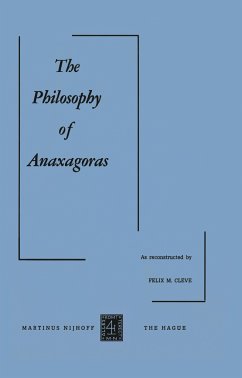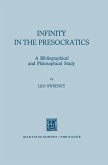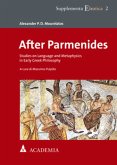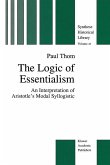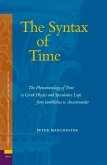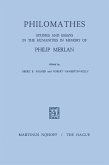Philosophia facta est, Quae philologia fuit. "It is indeed disastrous that of those earlier philosophic masters so little has remained, and that we have been deprived of anything complete. Because of that loss, we unintentionally measure them in wrong proportions and allow ourselves to be influenced against them by the merely accidental fact that Plato and Aristotle have never been short of praisers and copyists. . . . Probably the grandest part of Greek thought, and of its expression in words, has got lost." Friedrich Nietzsche, who wrote these sentences in 1873,_ is quite right (save that he takes for an accident what certainly was not one). Plato, our great Plato, is really but an imposing synthesis, the ad mirable architect of a grand building, practically none of the stones of which come from himself. And Aristotle, as far as his philosophy is concerned, is apparently little else but a Plato deprived of his poetical make-up, those ostensible differences notwithstanding whichAristotle himself is given to emphasizing. The truly great ones, the giants, the really original thinkers, the pure philosopher types, these are in the time before Plato. Again: Nietzsche is right.

